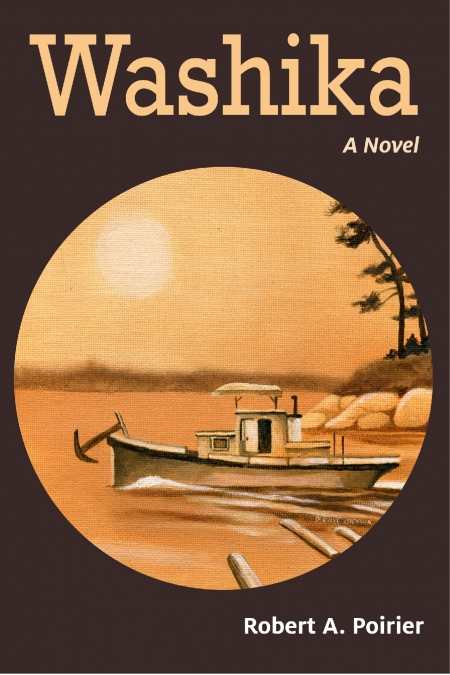Washika
Robert A. Poirier’s Washika is the story of a group of high school graduates from Quebec who spend a summer in the ’60s working on a log drive on the Cabonga River. The story is divided into four parts and begins slowly, with much description—of the river, the logging camp (Camp 15), the boat, and the tools of the trade. The reader is introduced to the men who have long been a part of this work, including the larger-than-life cook, Dumas, and the wise and accessible crew leader, Alphonse. It is the first time this student program has been attempted, and it will take some getting used to for the logging veterans. But even more so, it will have a profound effect on the lives of the young people.
Poirier’s descriptions are almost painfully detailed, and the book begins too slowly because of this. But it also means that the reader can smell and taste the meals, feel the weather, and accompany the crew on the rough landscape. The action does not all take place at Camp 15; in fact, the crew is taken to two other job sites. Part III, which has them fighting a forest fire, is particularly enjoyable to read. And there is even an occasional touch of poesy to the writing: “the music so loud you could feel its notes in your beer glass.”
Throughout the book we are offered glimpses into the personal lives of the characters. While at first some pieces of the backstory seem a bit awkwardly placed, none are unnecessary to the theme. It takes some time for the reader to determine that it is the student, Henri, who is at the core of the story. Eventually the reader is seeing things through the eyes of this character and is drawn into this young man’s current experience, his hopes, and his fears. Washika becomes a coming-of-age story, and a poignant one at that.
The central theme to Henri’s musings is the “haves” versus the “have-nots.” Introduced, but not emphasized, early in the book, it gains momentum by the third part, and by the fourth is paramount. Slowly, and evidenced by his reflections, Henri goes from being what he considers a “have-not” to one of the “haves.” Interestingly, he focuses not on the material realm, but instead considers the more elusive gains that revolve around emotional security. In the end, his desire is really about love.
Though Washika is not a “grab you right from the get-go” kind of novel, Poitier’s writing is solid; his voice and his theme are clear. There are minor errors in the text (a couple missing letters or words, misplaced commas, and one or two grammar errors) that can be easily ignored. The author provides glossaries of French and English expressions used in the book, which are indeed helpful. The cover art, a painting of a tug on the river, is lovely and befits the story and era, as does each photograph at the beginning of a new section.
Washika can be appreciated by readers of high school age on up. It offers introspection along with a bit of adventure. Anyone with interest in the history of this time, this region, or this industry will enjoy this personal tale.
Reviewed by
Patricia Morrow
Disclosure: This article is not an endorsement, but a review. The publisher of this book provided free copies of the book and paid a small fee to have their book reviewed by a professional reviewer. Foreword Reviews and Clarion Reviews make no guarantee that the publisher will receive a positive review. Foreword Magazine, Inc. is disclosing this in accordance with the Federal Trade Commission’s 16 CFR, Part 255.

